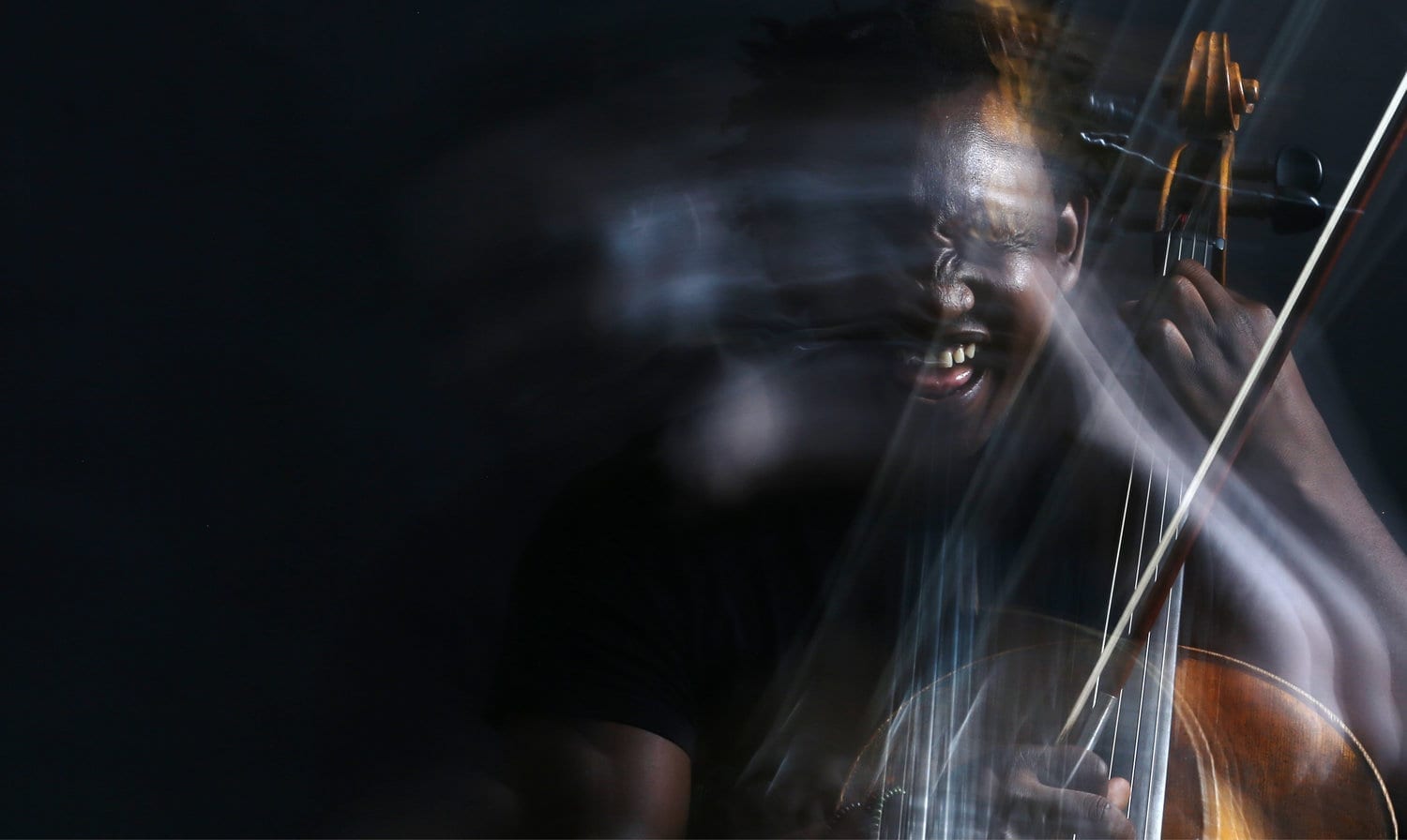“It’s not a concert, it’s a chat!” proclaimed Abel Selaocoe during the performance that took place in Manchester on the 9th June at the Stoller Hall. The Manchester Collective’s Sirocco opened at Kings Place in London on the 30th May and has already received standing ovations at its tour dates in Manchester and Liverpool. The show, curated by Selaocoe, who grew up near Johannesburg and studied music in Manchester, aims to create an immersive experience which is shared by both performers and audience. The main idea is that you are here to listen, to discover and to be part of a musical experiment.
The spectators sit partially on stage in order to encourage interaction with the six musicians present: Abel Selaocoe on cello, Rakhi and Simmy Singh on violins, Alistair McMath on double bass, Yahael Onono on percussions and Kay Stephen on viola. When they decided to co-found the Collective in 2016, Adam Szabo and Rakhi Singh wanted to inspire audiences with outstanding performances, from classical music to contemporary pieces. For this show, Selaocoe proposed a selection including Giovanni Sollima, William Lawes, Purcell, Haydn and Stravinsky, as well as folk music from different part of Africa and Norway.
The first piece, Sollima’s ‘Lamentatio’, opens the show. Selaocoe is alone in the middle of the stage under an orange spotlight; the combination of his haunting, deep voice and virtuoso cello-playing immediately captures the audience’s attention. The musicians change their styles constantly throughout the performance, with Selaocoe narrating the history of the pieces they play. As he says, “in Sirocco, we connect folk traditions of the world through the idea of a wind that travels from the Sahara across Southern Europe”. This performance is a real ode to African diversity and cultural encounters with western classical music, promoting a message of harmony through the language of music and the cultural similarities it draws out.
Audience participation can feel awkward or insincere, but the moment when the public joins in with the music is a real accomplishment; the electrical energy produced by a group of strangers singing together in celebration is deeply moving. Yahael Onono, playing several different West African instruments, deserves a special mention for his skilful weaving together of rhythms which can make one lose track of time.
Unfortunately, the Manchester show was the last one for the Sirocco project. I hope that the Manchester Collective’s imaginative future programme meets the high bar set by this once-in-a-lifetime experience – in particular, Rakhi / Katya, the piano / violin duo described as ‘chamber music at the highest level’, promises to be brilliant.

